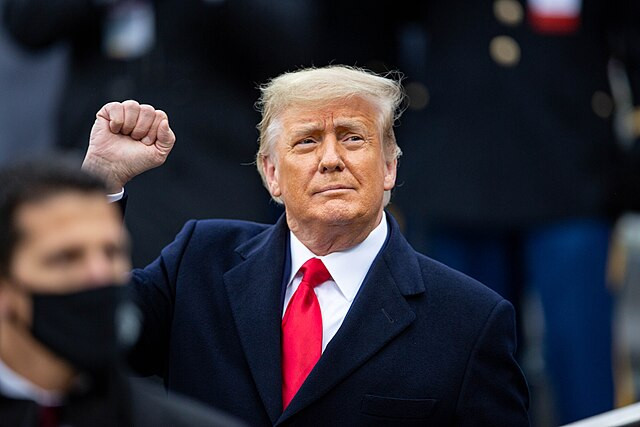A New York appellate judge has denied President-elect Donald Trump's emergency motion to halt his scheduled sentencing in the hush money case, ensuring the proceedings will go forward as planned on Friday, January 10. Trump, convicted in May 2024 on 34 felony counts of falsifying business records, had sought to delay the sentencing, citing presidential immunity and potential disruptions to his transition into office.
Justice Ellen Gesmer issued her ruling on Tuesday, rejecting the appeal after hearing arguments from Trump's legal team and the Manhattan District Attorney's office. "After consideration of the papers submitted and the extensive oral argument, movant's application for an interim stay is denied," Gesmer wrote in her decision.
The case stems from allegations that Trump falsified business records to conceal a $130,000 payment made to adult film actress Stormy Daniels during the 2016 presidential campaign. Prosecutors argued the payment was intended to silence Daniels' claims of an alleged affair with Trump in 2006, a claim Trump has consistently denied. Manhattan District Attorney Alvin Bragg's office successfully argued that the records were manipulated to obscure the payment's true purpose.
Trump's attorney, Todd Blanche, argued before the appellate court that Trump should be shielded by presidential immunity, asserting, "There has never been a case like this. President-elect Trump should not have to go through any legal process." Blanche also emphasized the potential disruption to the presidential transition, calling the sentencing "a very big deal."
Steven Wu, representing the Manhattan DA's office, countered that Trump's claim of immunity was baseless, stating, "There is no support for that." Wu further argued that the virtual sentencing would take approximately one hour and would not interfere with the president-elect's transition activities. "There is one president at a time," he noted, underscoring that Trump would not officially assume presidential duties until his inauguration on January 20.
Trump's legal team had filed the emergency motion citing last year's Supreme Court decision that established new standards for presidential immunity. However, Judge Juan Merchan, who presided over Trump's trial, previously ruled that immunity would not apply until Trump is sworn in. Merchan had earlier postponed sentencing following the Supreme Court decision but scheduled the final proceeding for January 10, directing that Trump would receive an unconditional discharge. This would mean the conviction remains on record, but Trump would face no additional penalties.
Manhattan prosecutors have maintained there is no justification to delay sentencing further. In a court filing Monday, the DA's office wrote, "This is the least burdensome time for the president-elect to be sentenced. He has no viable claim of presidential immunity from ordinary criminal process and is not yet engaged in any official presidential functions that would be disrupted by the sentencing."
The sentencing will take place virtually, allowing Trump to participate remotely. Trump has decried the case as a politically motivated "witch hunt," with his spokesperson, Steven Cheung, echoing this sentiment. Cheung labeled the proceedings "unlawful" and claimed they reflected the "political weaponization of our justice system."
Despite the conviction, Trump remains defiant, continuing to rally support from his base ahead of his January 20 inauguration. "The American people elected President Trump with an overwhelming mandate that demands an immediate end to the remaining witch hunts," Cheung said in a statement Monday.






